You think you’re just sentimental or prepared for anything, but these warning signs suggest your “stuff” is getting out of hand.

Nobody likes to think of themselves as a hoarder. Hoarding sounds extreme—like something you see on reality TV, with rooms stacked to the ceiling and pathways carved through piles of forgotten junk. But in reality, hoarding doesn’t always look that dramatic. It can start small, with just a few extra things you hold onto “just in case” or a growing pile of sentimental items that feel too important to part with.
The problem is, clutter has a sneaky way of building up. One day, it’s a junk drawer that won’t close, and before you know it, every closet, shelf, and spare room is filled to the brim. If getting rid of things feels stressful, or if your home is starting to feel more crowded than comfortable, it might be time for a reality check.
1. You have entire rooms or spaces that you avoid because they’re too cluttered.
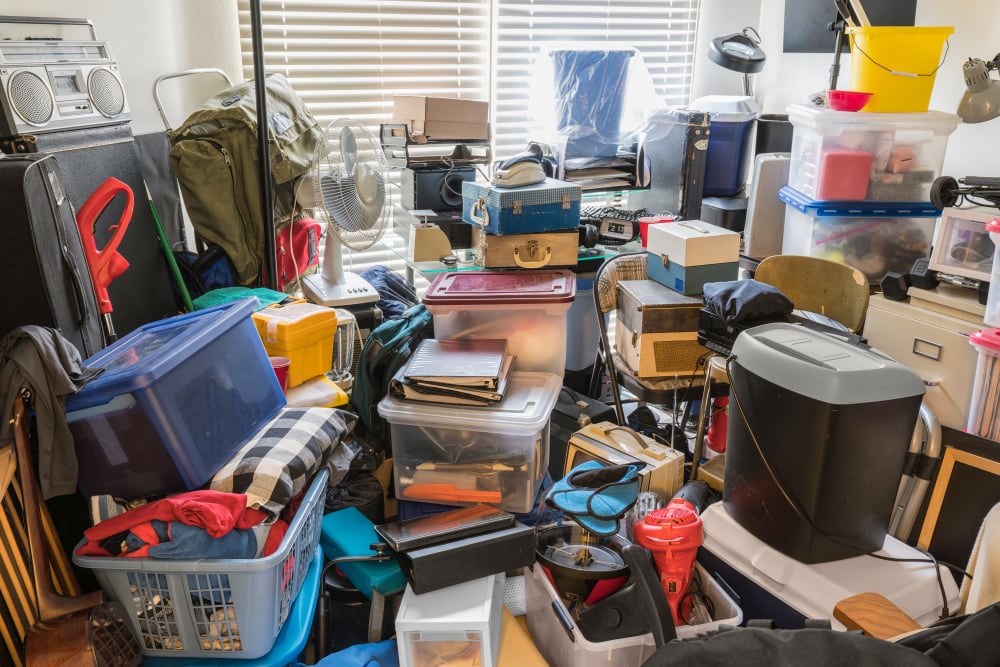
A house should feel like a home, but if you have rooms that are so packed with stuff that you rarely step foot in them, that’s a red flag, according to an article for Epiphany Wellness. Maybe it’s a spare bedroom that’s turned into a storage unit, a garage that can’t fit a car, or a basement stacked with boxes you haven’t opened in years.
Avoiding certain spaces because they stress you out or feel overwhelming is a sign that clutter is controlling your home instead of the other way around. If a room is too full to use for its intended purpose, it’s time to rethink what’s really worth keeping.
2. You buy storage bins instead of decluttering.
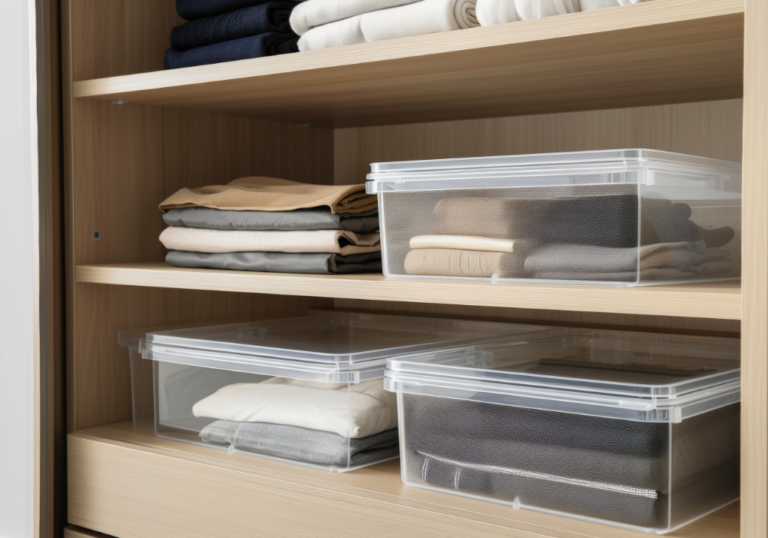
Organizing feels productive, but if your solution to clutter is constantly buying more bins, baskets, or shelving units, you might just be rearranging the problem, as mentioned in Simply Enough. Storage solutions can only do so much if you’re unwilling to let go of the excess.
Instead of solving the issue, you’re just finding new ways to keep things you don’t actually need. A home shouldn’t feel like a warehouse of plastic tubs filled with forgotten items. If the thought of decluttering makes you anxious, ask yourself why you’re so attached to things that spend more time in storage than in use.
3. You have emotional attachments to objects that go beyond nostalgia.
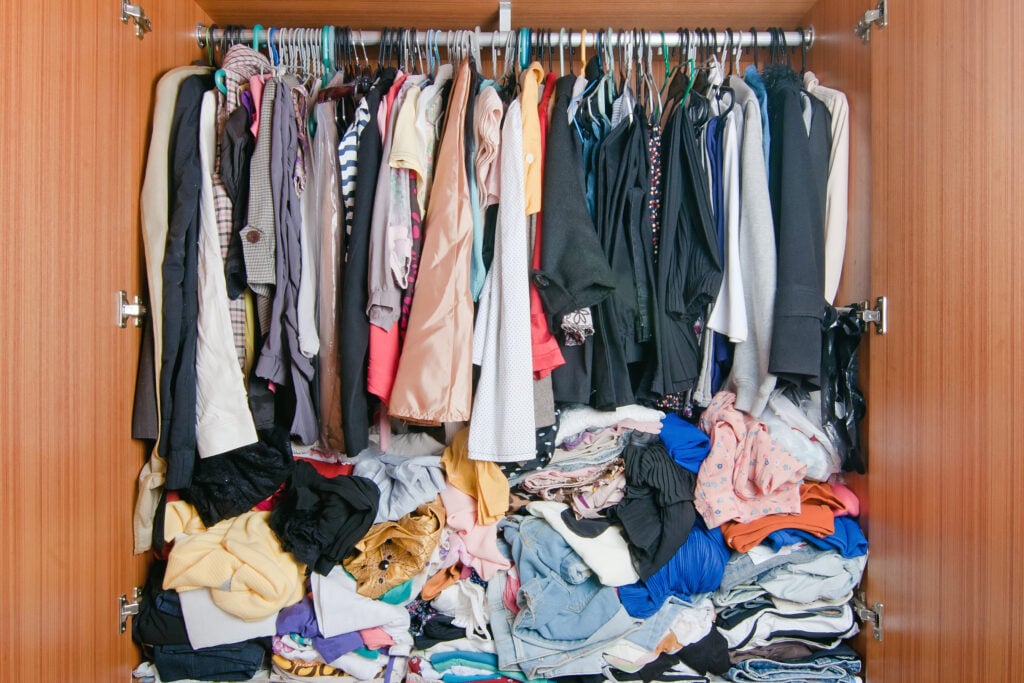
It’s normal to keep sentimental items, but when every random object starts carrying emotional weight, it becomes harder to let go, as mentioned in Good Housekeeping. If you feel guilty about donating clothes you haven’t worn in a decade or struggle to throw away broken knickknacks because they remind you of a specific moment, you may be placing too much meaning on material things.
The memories aren’t in the objects—they’re in you. Letting go of things that no longer serve you doesn’t erase the past; it just frees up space for the present.
4. You keep things “just in case” but never actually use them.
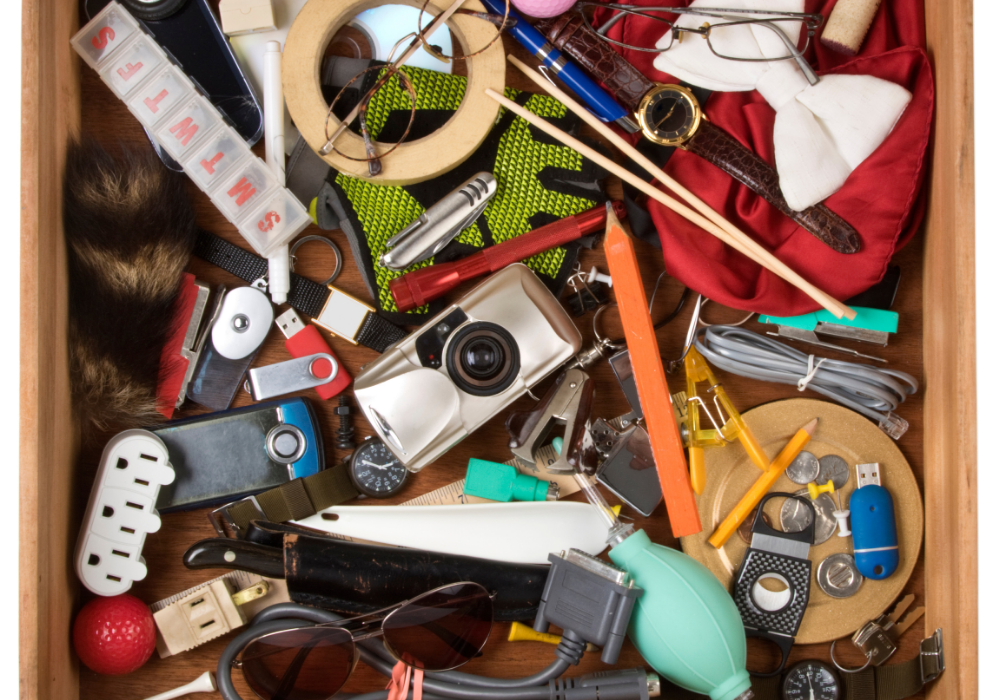
If your closets, drawers, and shelves are filled with items you’re holding onto for a hypothetical future that never comes, clutter is winning. That broken appliance you might fix someday, the craft supplies for a project you never started, or the stacks of old magazines you swear you’ll read again—these are all excuses for keeping things that aren’t actually serving you, reminds Julia Hubbenga on her website Rich in What Matters.
If something has been sitting untouched for years, chances are you won’t suddenly need it tomorrow. The space in your home is more valuable than the slim chance you’ll find a use for that random object someday.
5. You struggle to throw away things that are damaged or broken.
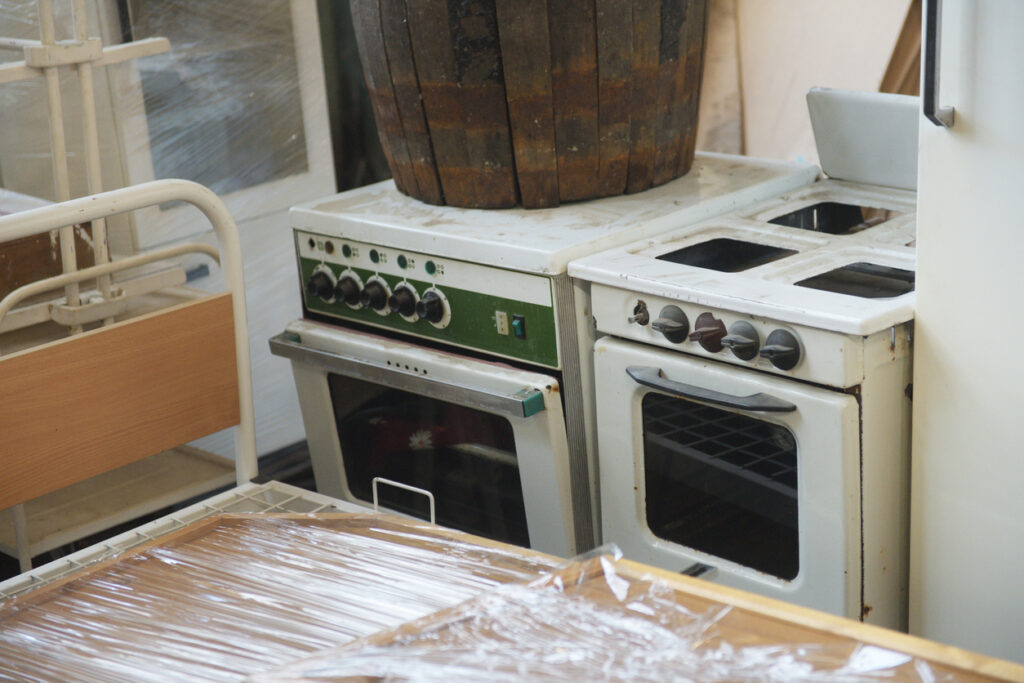
Hoarding isn’t just about keeping too much—it’s also about struggling to let go, even when things are clearly no longer useful. If you have broken appliances, ripped clothing, or furniture that’s beyond repair but still taking up space, ask yourself why.
Sometimes, the excuse is that you’ll “fix it eventually,” but if years have passed and the item is still sitting there, it’s time to be honest. If it hasn’t been repaired by now, it probably never will be, and keeping broken things only adds to the mess.
6. You have multiples of things you don’t need.
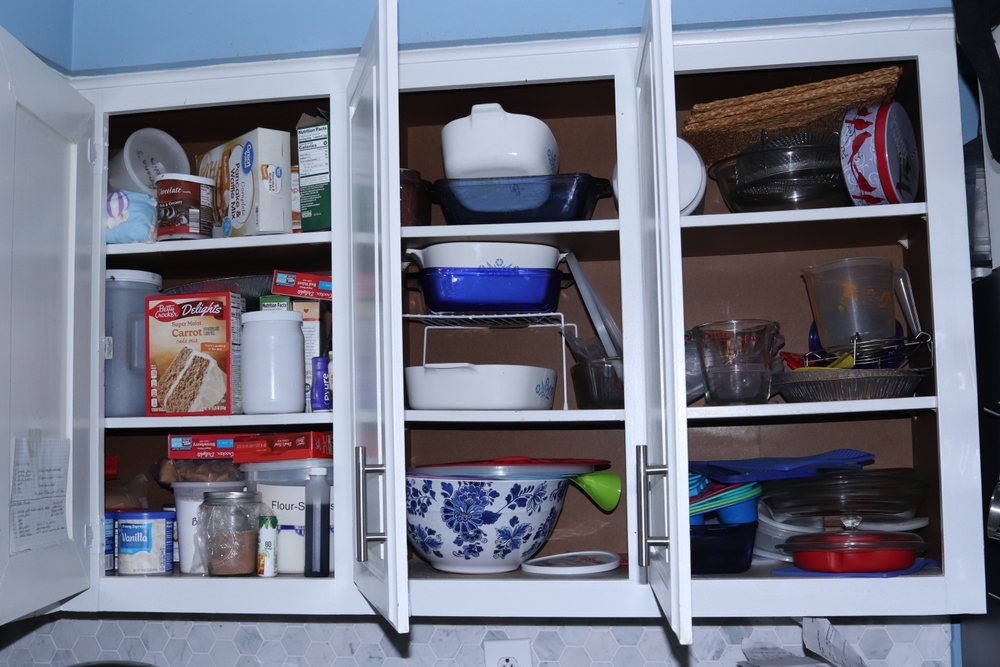
How many coffee mugs, pairs of scissors, or rolls of tape does one person really need? If you have drawers filled with duplicate items, you might be holding onto excess out of habit rather than necessity. It’s easy to lose track of what you already own when things aren’t organized, which leads to buying more just in case.
But if you take a step back and realize you own ten of something when two would do, it’s time to downsize. Less clutter means actually being able to find what you need when you need it.
7. Your possessions are starting to take up your living space.
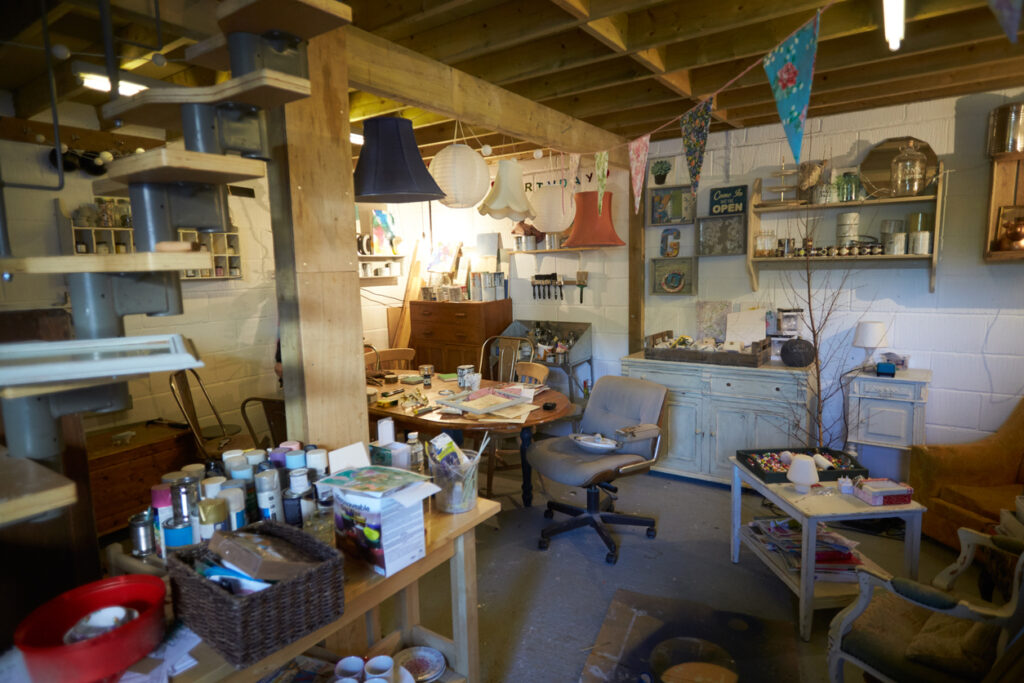
If you’re constantly shifting piles of stuff just to sit down, cook a meal, or get dressed, your belongings have taken over. A home should function for you, not be a storage space for things you never use.
When every available surface is covered and there’s no room to breathe, clutter stops being an inconvenience and starts becoming a lifestyle. If you’ve lost the ability to fully enjoy your own space, it’s time to take back control.
8. You avoid having guests over because you’re embarrassed by the mess.

If the thought of someone unexpectedly stopping by sends you into a panic, that’s a major sign that clutter has become a problem. When piles of stuff make you feel ashamed or anxious about visitors, it’s no longer just a personal issue—it’s affecting your social life.
A home should be a welcoming space, not a place you feel the need to hide. If clutter is keeping you from inviting friends or family over, that’s a sign it’s time to make a change.
9. You frequently misplace important items in the mess.
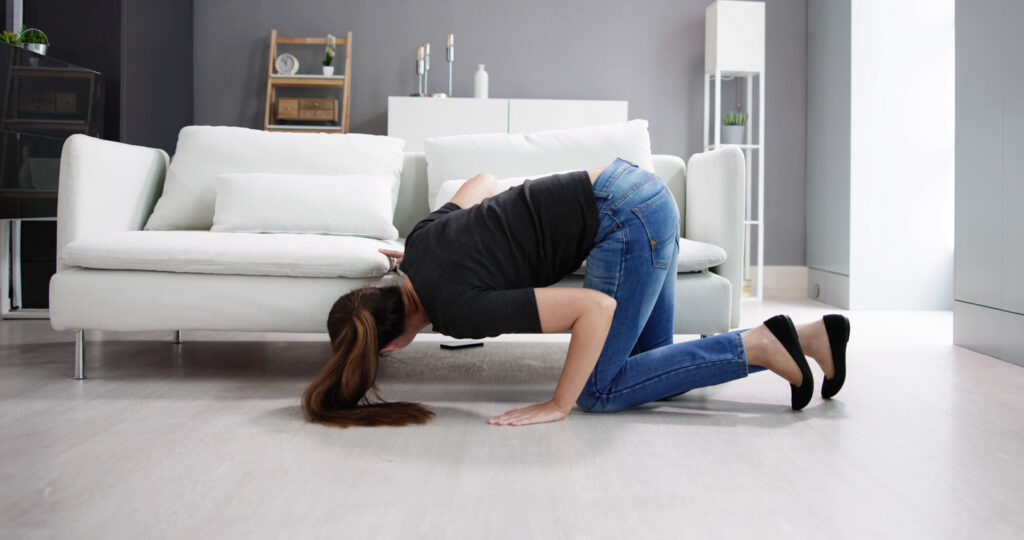
Losing your keys or phone every now and then is normal, but constantly misplacing things because they’re buried under piles of clutter is a different story. If searching for everyday essentials has become a daily struggle, it’s a sign that your space isn’t working for you.
A cluttered home creates unnecessary stress and frustration, making simple tasks harder than they need to be. When you clear out the excess, finding what you actually need becomes effortless.
10. You feel overwhelmed at the thought of getting rid of things.

Decluttering isn’t easy, but if the idea of letting go fills you with panic or dread, that’s a red flag. Whether it’s anxiety about parting with sentimental items or fear of needing something later, those emotions can keep you stuck in a cycle of accumulating more than you need.
The longer you put off decluttering, the worse the problem becomes, making it even harder to start. Letting go doesn’t mean losing something—it means gaining space, peace, and freedom from the weight of too much stuff.
11. You feel guilty throwing things away, even if they serve no purpose.
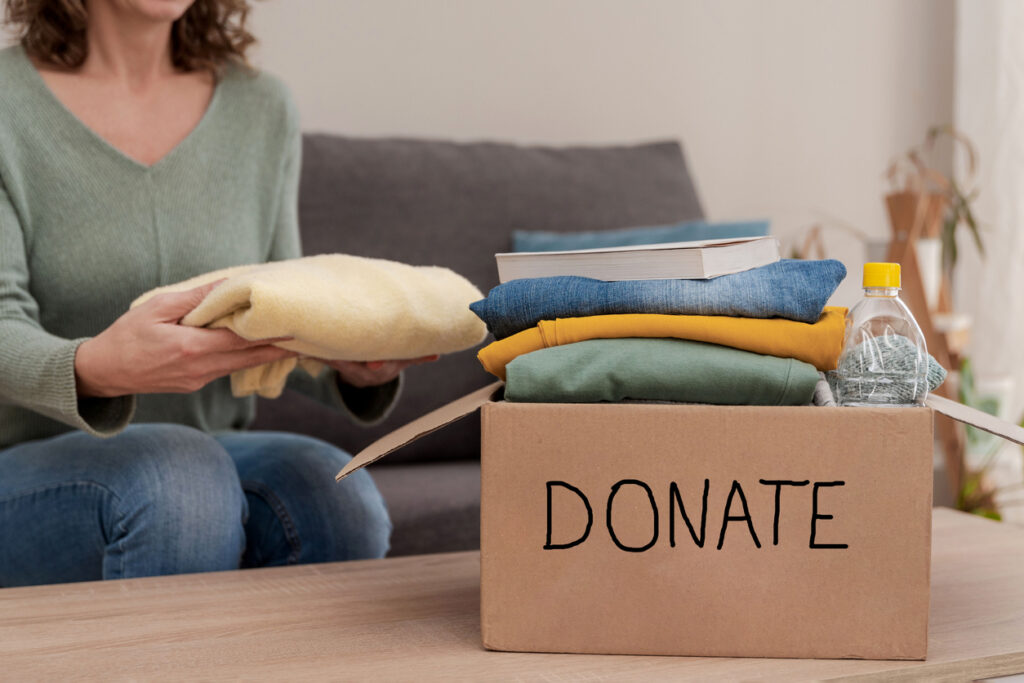
If getting rid of something—even something broken or useless—makes you feel like you’re wasting money or being irresponsible, you may be attaching too much value to material possessions. Some people hold onto things because they were expensive, even if they never use them.
Others feel guilty throwing away gifts, even if they never liked them in the first place. But keeping things out of guilt only creates clutter and stress. Your home should be filled with things you love and use, not things you feel obligated to keep.
12. You keep adding to the clutter instead of clearing it out.
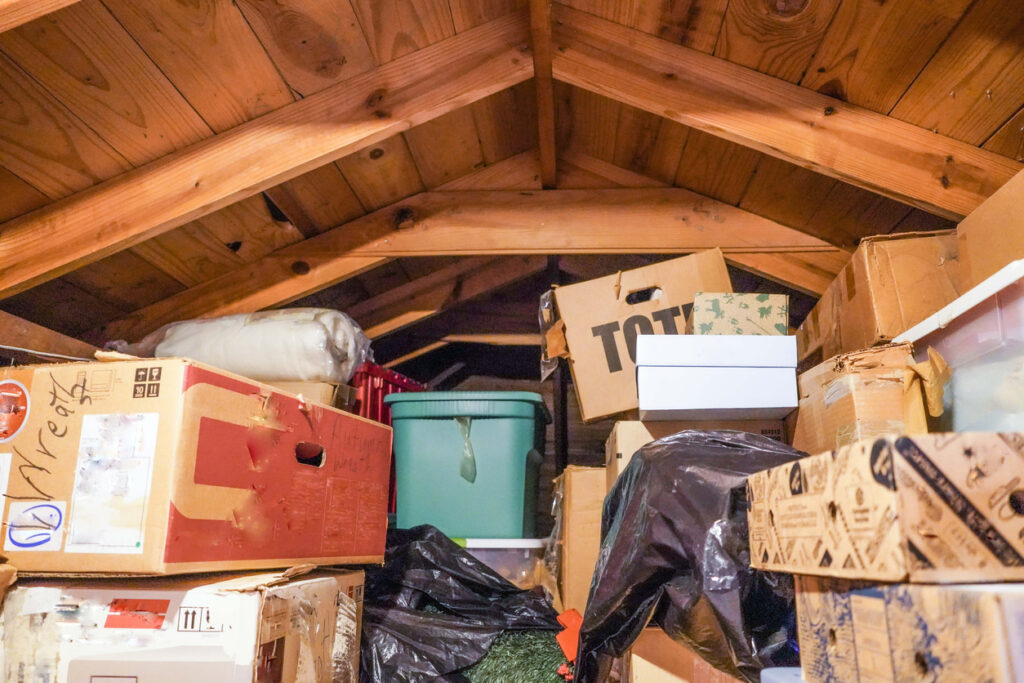
If new things keep coming in, but nothing ever goes out, your space will always feel overwhelming. Whether it’s impulse shopping, thrift store finds, or sentimental items passed down from family, an endless cycle of accumulation leads to chaos.
Breaking the habit of bringing in more than you need is key to stopping clutter from taking over. Learning to be intentional about what stays in your home is the first step toward creating a space that feels calm instead of crowded.
